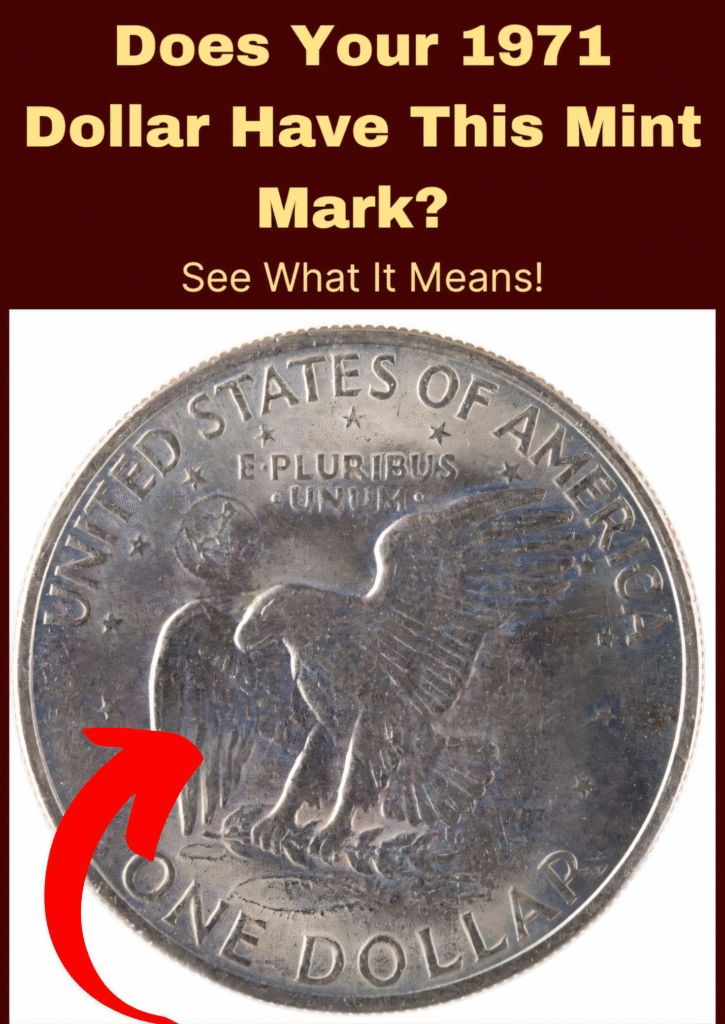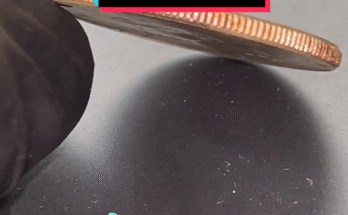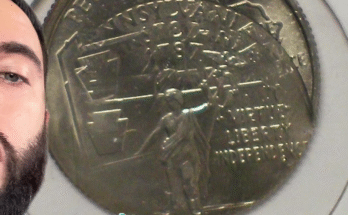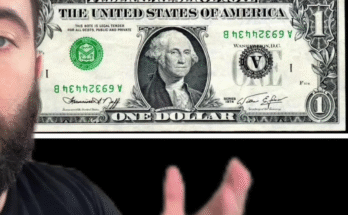
⚡ Global Coin Hunt Alert: This ultra-rare Eisenhower dollar combines a prototype design with the wrong metal, making it one of the most valuable modern U.S. coins ever — worth over $100,000!
🪙 The Story Behind the Lost 1971 “High-Relief Prototype” Dollar
Most 1971 Eisenhower (“Ike”) dollars are common pocket change — but a few mysterious coins break the rules in every possible way. One legendary version combines:
- No Mint Mark (Philadelphia issue)
- Struck in 40% Silver (meant only for San Francisco “S” coins)
- Unique High-Relief Prototype Reverse
This “trifecta” error makes it a holy grail for collectors.
📜 A Quick History of the Eisenhower Dollar
- First Year (1971): Most were copper-nickel clad, made in Philadelphia (no mint mark) or Denver (“D”).
- Collector Versions: Made in San Francisco (“S”) with 40% silver.
- Mint Mark Tip: On all Ike dollars, the mint mark is on the front, above the date — not on the back!
💲 Why the Prototype Error Is Worth $100,000
The Hidden Mint Story:
Before the Ike dollar was released, Chief Engraver Frank Gasparro designed a stunning high-relief eagle for the reverse. It was incredibly detailed — each feather sharp, the moon’s craters deep. But it was rejected for mass production because it wore out dies too quickly. The mint ordered the prototype dies destroyed.
The Mistake:
Legend says that in Philadelphia, one prototype die was accidentally used… and struck on 40% silver planchets shipped from San Francisco. The result?
- Wrong mint mark (none)
- Wrong metal (silver instead of clad)
- Unique design never meant for circulation
🔍 How to Check Your 1971 Dollar (3 Steps)
Step 1: Edge Test 🧐
- Normal clad dollar: Copper stripe on the edge.
- Possible silver error: Solid silver-colored edge (no copper).
Step 2: Weight Test ⚖️
Use a digital scale:
- Clad Ike: 22.68 g
- 40% Silver Ike: 24.59 g
If your no mint mark coin weighs close to 25 g, it’s worth further checking.
Step 3: Eagle Detail Test 🦅
Under magnification, compare the eagle to a normal Ike:
- Prototype: Deep, 3D-like feathers, sharp talons, and deep moon craters.
- Regular: Flatter, less-defined design.
✅ What to Do If You Find One
- Handle with Care – Only touch the edges.
- No Cleaning! 🚫 – Cleaning destroys collector value.
- Protect It – Store in a coin flip or holder.
- Authenticate – Send to PCGS or NGC for grading.
- Sell Through Experts – Use a top-tier auction house for maximum exposure and bids.
🌏 The Global Hunt Is On
These large silver dollars have traveled worldwide since 1971. Whether in a New York apartment drawer, a London antique shop, or a Siem Reap market stall, the next great discovery could be anywhere.
📸 Think you’ve got one? Share photos of the front, back, and edge with our collector community!



Leave a Reply